Mastering grill protection begins with selecting the ideal cover. Evaluate covers based on materials like polyester for durability and UV resistance, or vinyl for water resistance. Fit is important ; a snug cover prevents dust, water, and pests, while maintaining the grill's appearance and functionality. Seasonal changes dictate different needs ; summer covers should resist UV rays, and winter covers should handle low temperatures without cracking. Regular maintenance , including cleaning and checking for wear, is essential to extend a cover's life. Proper use , such as securing the cover to avoid wind damage, enhances effectiveness. Discover best practices to maximize your grill cover investment, ensuring each season brings optimal enjoyment.
Importance of Grill Covers
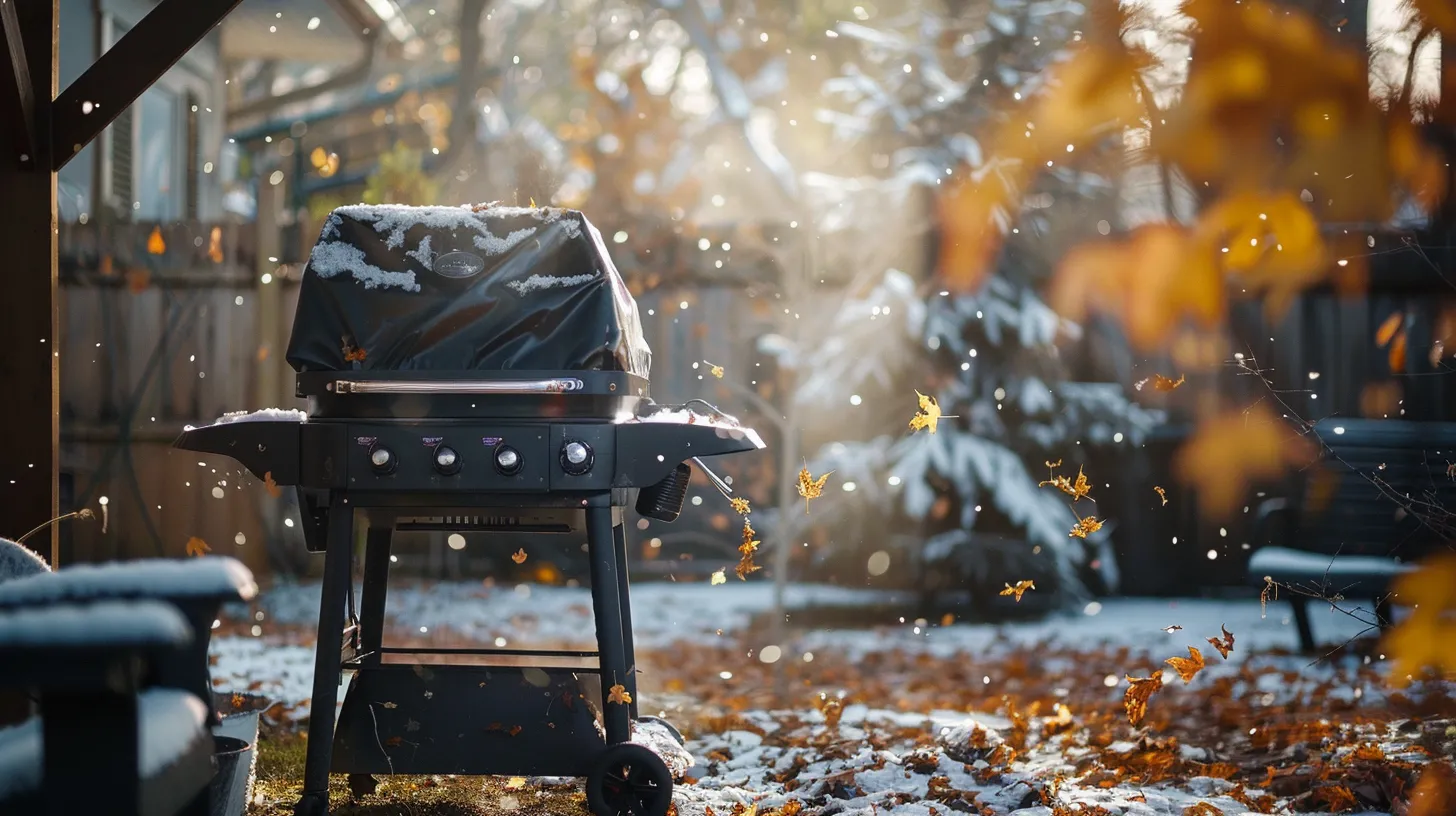
While many overlook their importance, grill covers play a crucial role in preserving the condition and longevity of your grill. The primary function of a grill cover is to offer proper protection against various external elements that can be detrimental to your grill's performance and appearance. Exposure to moisture is one of the most common hazards, leading to rust and corrosion if the grill is left unprotected. A high-quality grill cover acts as a shield, keeping moisture at bay and preventing these damaging effects.
Additionally, grills are often vulnerable to invasions by pests such as insects and small animals, which can cause physical damage and contaminate the surface. A robust grill cover ensures that these pests cannot access the grill, maintaining a clean and hygienic surface for cooking. Furthermore, the cover helps to ward off mold and mildew , which thrive in damp environments, further contributing to the grill's cleanliness.
Investing in a reliable grill cover not only enhances the grill's lifespan but also ensures that it remains in top working condition , saving you money on potential repairs or replacements due to premature deterioration. This makes the grill cover an indispensable accessory for any grill owner.
Types of Grill Covers
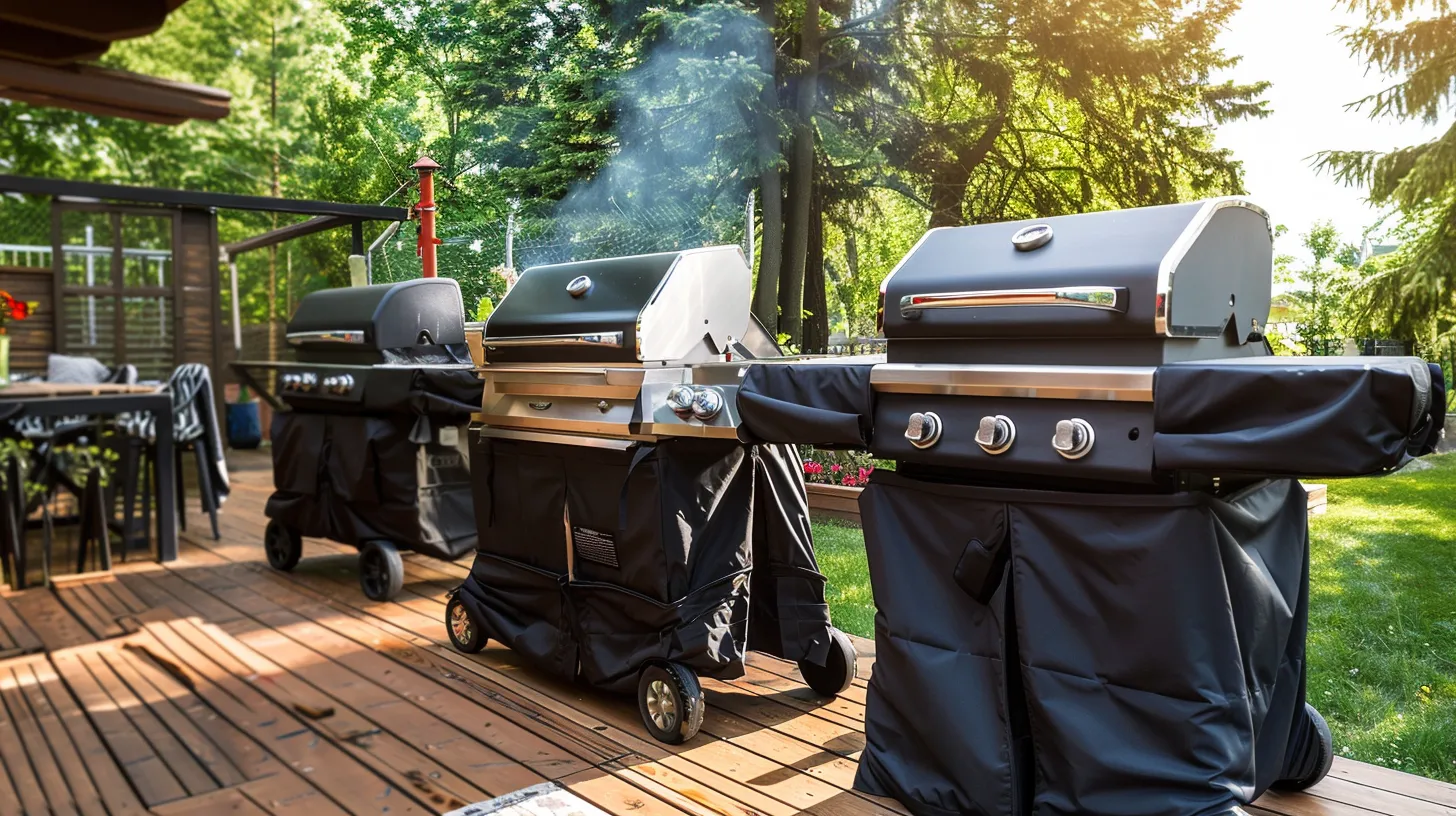
When selecting a grill cover , it is important to understand the various types available to guarantee excellent protection for your grill. The selection ranges from universal fit covers to custom fit covers , and specialty covers designed for specific models . Each type offers different benefits and levels of protection, which are essential for maintaining your grill in pristine condition.
Universal fit covers are widely accessible and cater to a broad spectrum of grill sizes and shapes. However, their one-size-fits-all approach might not always provide a perfect fit, potentially leaving parts of the grill exposed or improperly secured against adverse weather conditions . This can lead to inefficiencies in protection, making it vital to choose the right type based on your specific needs.
Custom fit covers, tailored to the exact dimensions of your grill, ensure a snug and secure enclosure, offering superior protection . The precise fit minimizes the risk of the cover being dislodged by wind or allowing moisture and debris to infiltrate.
Specialty covers, meanwhile, are explicitly crafted for particular grill models. These covers often incorporate additional features like reinforced seams or specialized materials , enhancing the cover's durability and functionality. Choosing the right specialty cover can greatly extend the lifespan and appearance of your grill.
Selecting the Right Size
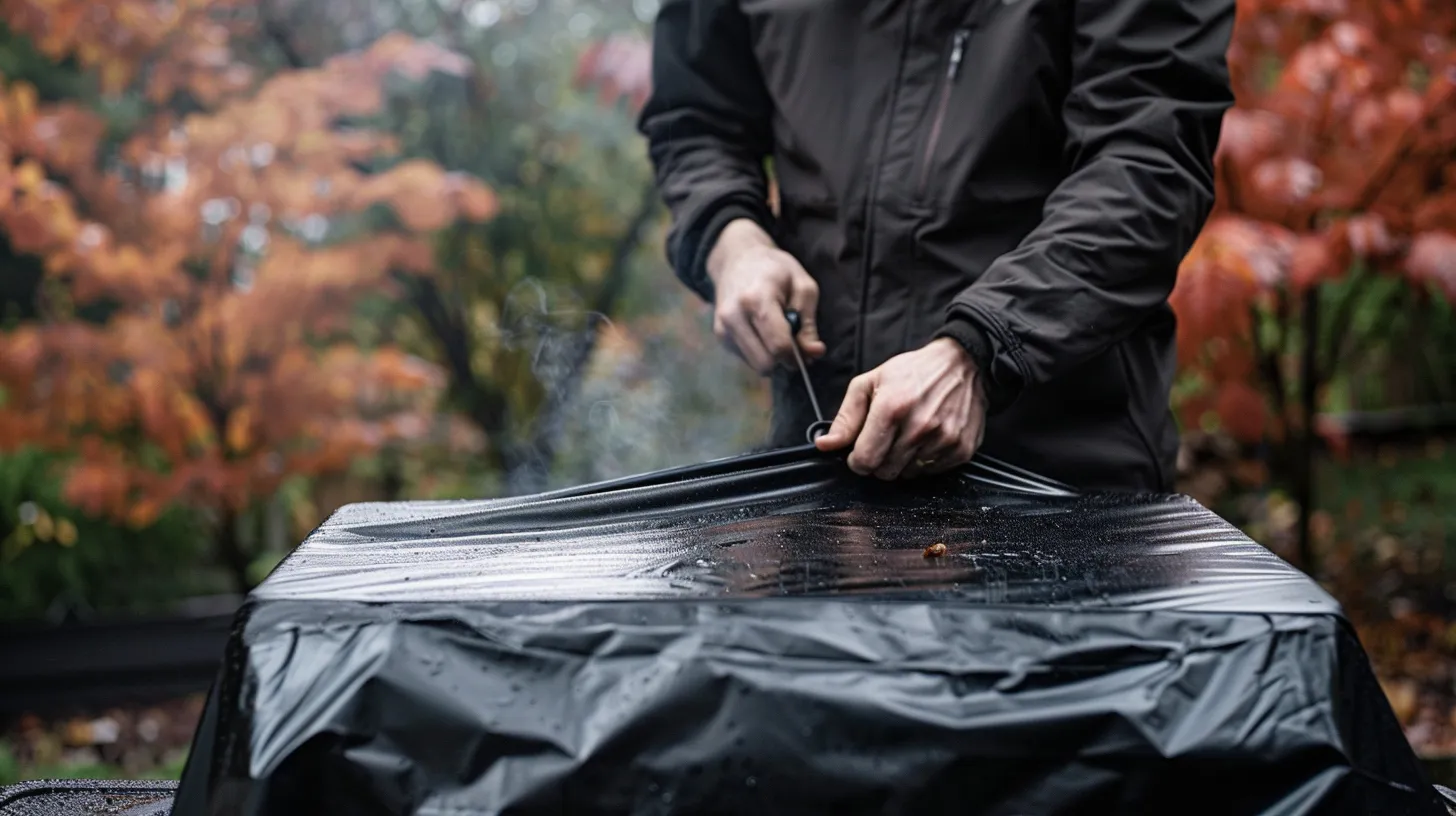
To guarantee excellent protection for your grill, it is important to select a grill cover that fits snugly , encompassing all components without being overly tight. Accurate measurement of your grill's dimensions is essential in finding a cover that provides complete coverage . This ensures that every part of the grill, including the cooking surface and any attached accessories, is protected from environmental elements.
Selecting the right size not only enhances protection but also prevents potential damage . A cover that is too small risks leaving parts of the grill exposed to moisture and pests, which can shorten its lifespan. Conversely, an oversized cover may catch the wind, leading to flapping that could wear out the cover or even knock over grill accessories. Therefore, precision in sizing is important for effective protection.
The correct fit of a grill cover plays a pivotal role in its effectiveness. It should cover the entire grill comfortably without squeezing its parts or having excess material that could create vulnerabilities. By choosing the right size, you safeguard your grill against the risks posed by weather, animals, and other external factors, thereby extending the life and maintaining the condition of your grill.
Material Choices Explained
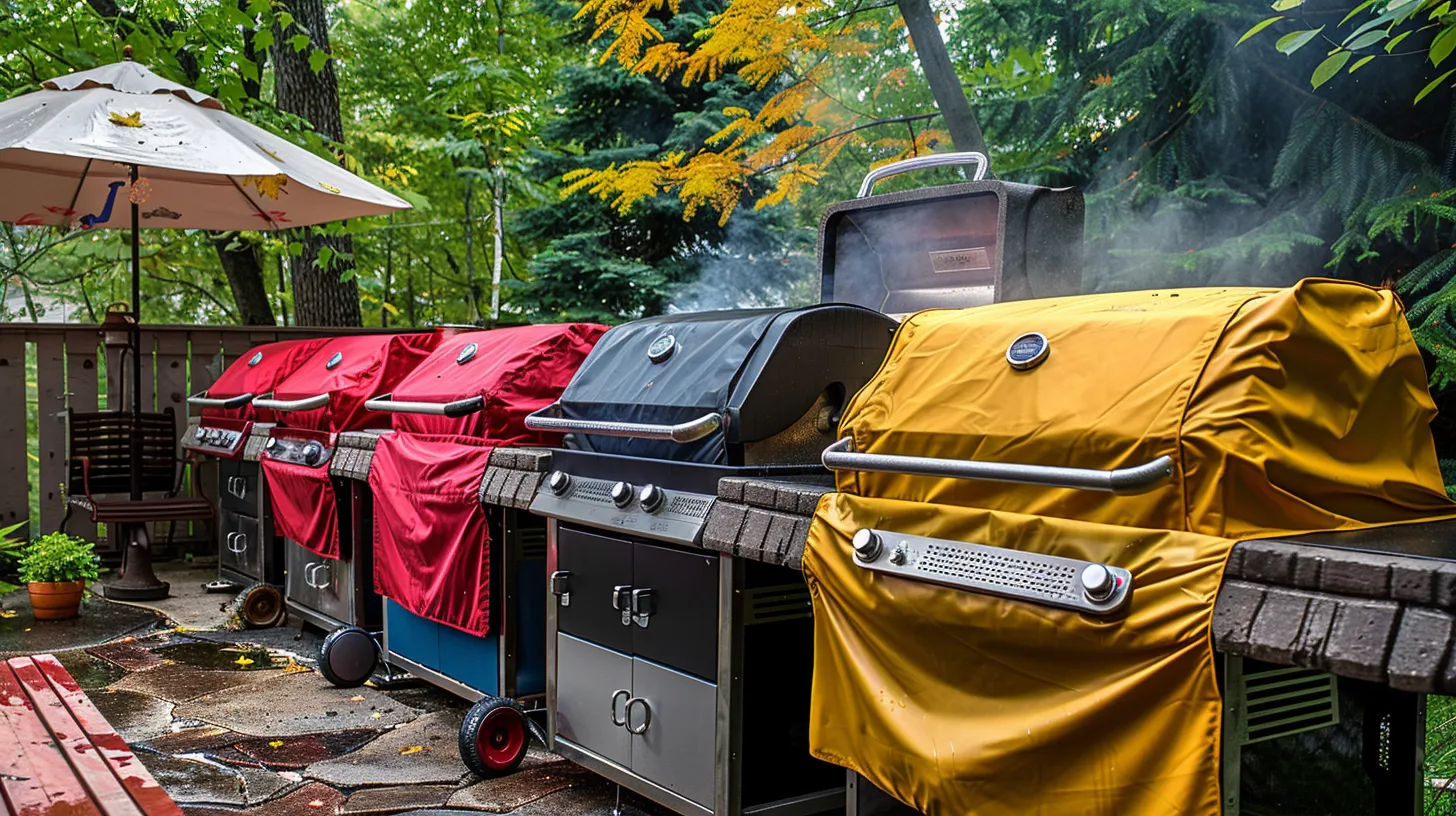
After selecting the right size, choosing the appropriate material for a grill cover is equally important to guarantee the best protection. Polyester , a commonly selected material, stands out for its durability and resistance to UV rays , coupled with its affordability. This makes it a well-rounded choice for many users. However, for environments where water exposure is frequent, vinyl grill covers are more suitable due to their excellent water resistance . Easy to clean, they are particularly handy in rainy or snowy conditions.
Moving towards options that enhance air circulation, canvas grill covers are remarkable. Their breathable fabric prevents condensation build-up, important in avoiding mold and mildew , which are common issues in more humid climates. For those in search of the utmost in harsh weather defense, heavy-duty PVC covers are recommended. Their robust nature ensures they withstand severe weather changes, providing long-lasting durability and protection.
Lastly, acrylic grill covers represent a versatile option. They blend the advantages of water resistance, UV protection, and resistance to mold and mildew, making them an excellent all-season choice. When protecting your grill, the material of the cover plays a significant role in combating various environmental challenges while promoting longevity and cleanliness of the grill.
Seasonal Considerations
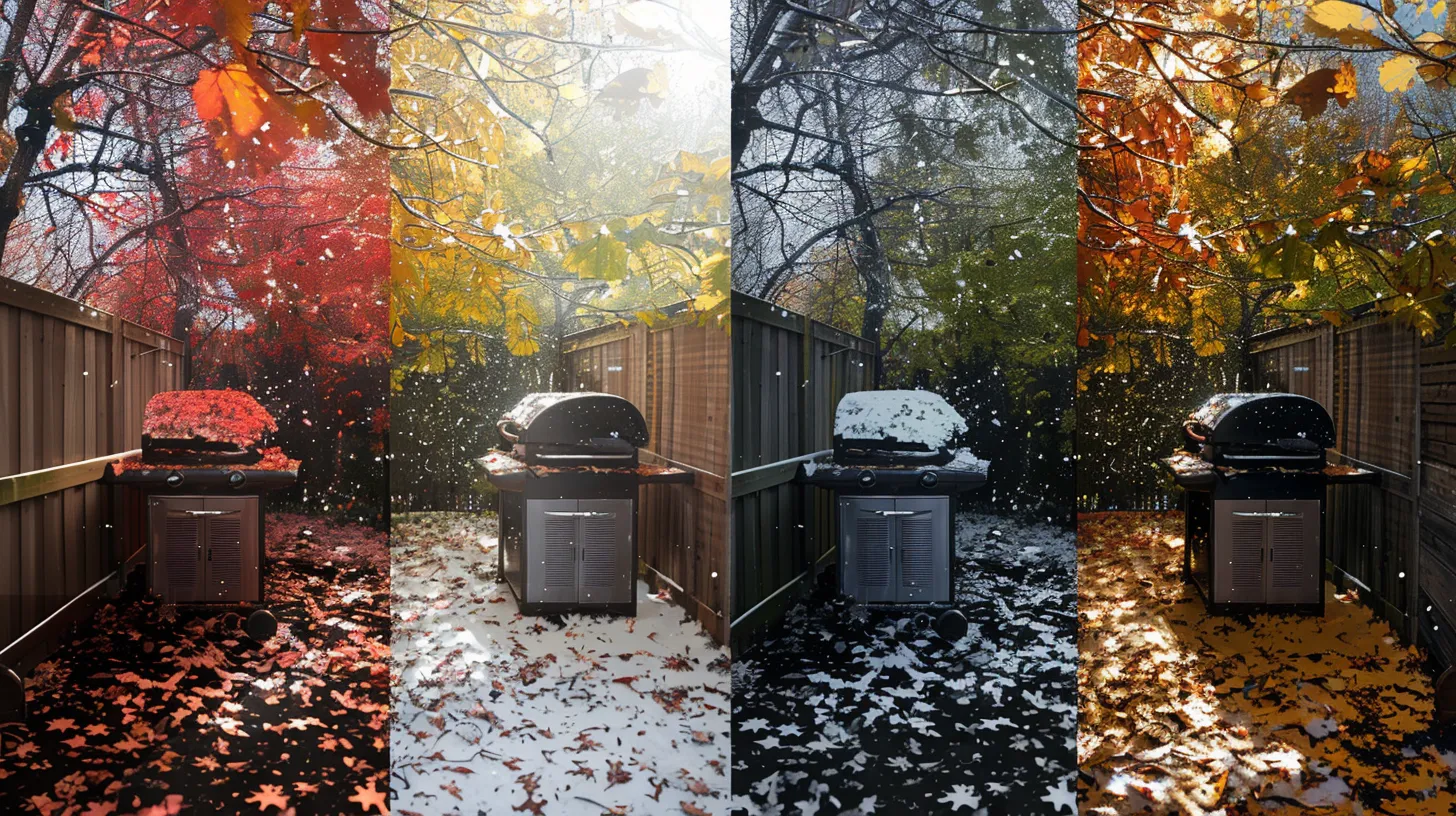
Understanding the impact of seasonal variations is essential for selecting a grill cover that offers the best protection throughout the year. Different seasons dictate unique challenges, demanding a cover that can handle these changes effectively. For instance, the intense summer heat can lead to the fading and weakening of the material, necessitating covers that come with UV protection and are made from fade-resistant fabrics . Conversely, the harsh winter conditions require covers that are robust enough to prevent cracking from the cold and provide ample coverage to keep moisture out, thereby preventing corrosion and rust.
As the seasons change, the wear and tear on your grill cover will vary, making it important to choose a cover that can withstand such diverse weather conditions . This approach not only preserves the aesthetic appeal of your grill cover but also ensures it remains functional over time. Regular inspections and cleanings, adjusted for seasonal exposure, allow for proper maintenance , which is pivotal in extending the lifespan of both the cover and the grill it protects. Adapting your maintenance practices to suit these seasonal necessities guarantees that your grill remains shielded year-round, maintaining its readiness and performance for every grilling opportunity.
Proper Usage Techniques
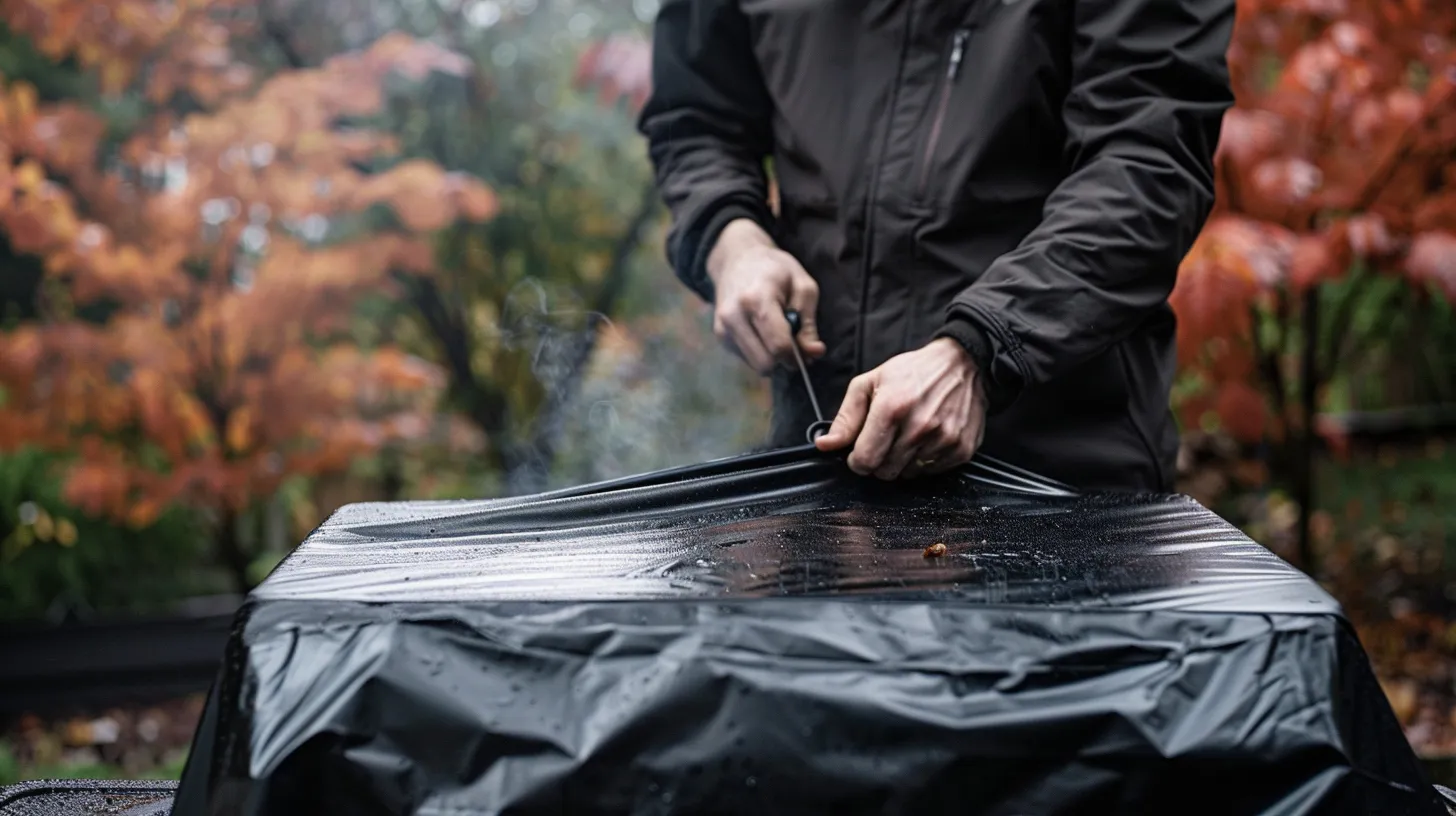
Proper usage techniques are essential in maximizing the effectiveness and longevity of your grill cover. To begin, it's important to always clean and dry your grill thoroughly before applying the cover. This prevents moisture buildup which can lead to rust and corrosion over time. Ensuring the grill is dry helps maintain the structural integrity of both the grill and the cover.
Next, secure the grill cover using straps or fasteners. This is particularly vital in areas with frequent windy conditions, as it prevents the cover from being blown away or damaged. Properly secured covers designed for specific grill models offer the best protection and fit, reducing the risk of exposure to the elements.
Regular inspection of the cover is also key. Check for any signs of wear such as tears or holes, and address these issues promptly to maintain the cover's effectiveness. For long-term storage, particularly in wet or humid climates, opt for a grill cover made from breathable fabric . This feature helps in minimizing the growth of mold and mildew by allowing air circulation, which is important in preventing moisture accumulation and the associated problems. Periodic removal of the cover to air out the grill further aids in this effort.
Maintenance Tips
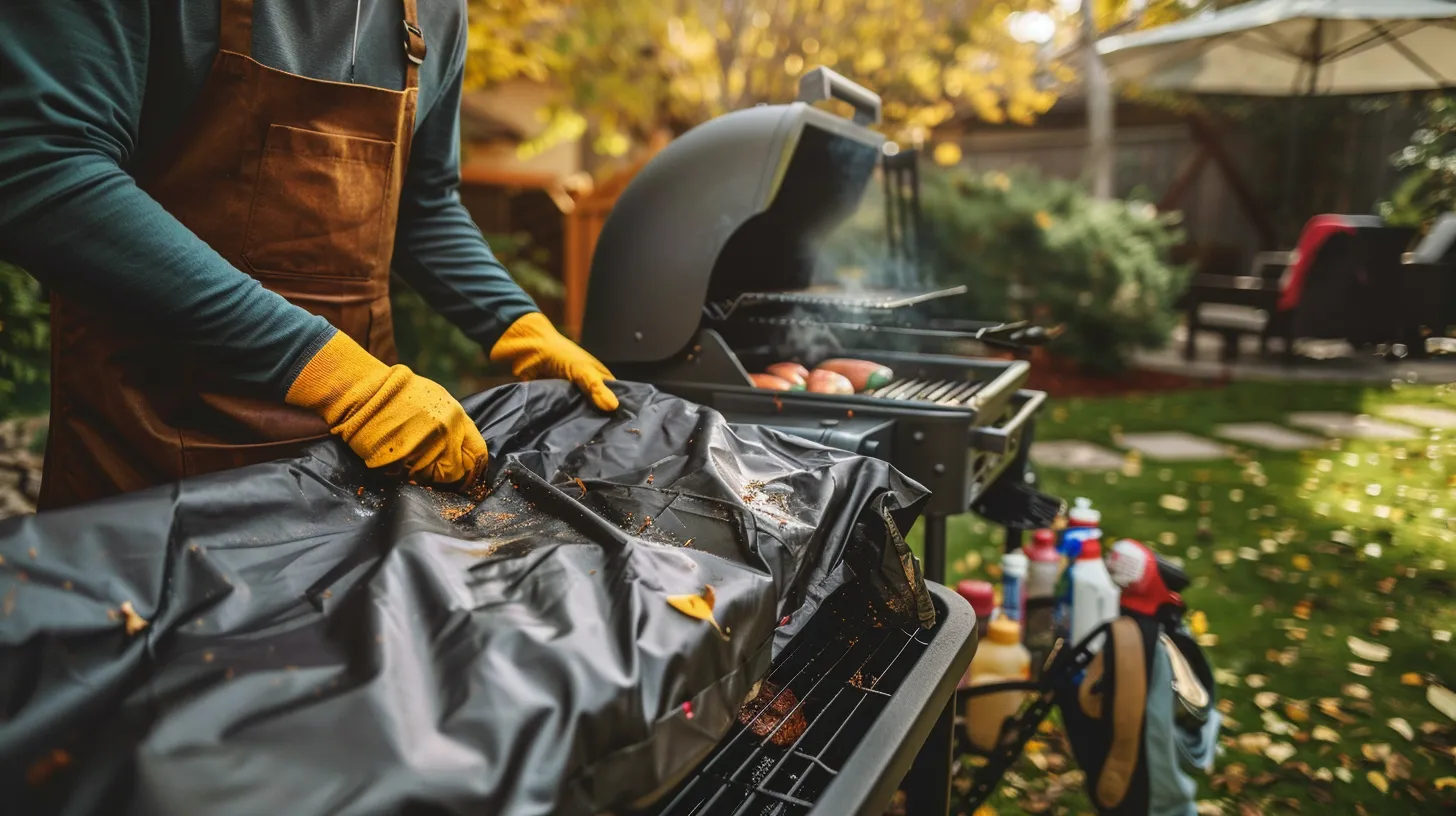
Maintaining your grill cover with regular cleaning and inspections plays an important role in preserving its condition and functionality. Proper upkeep guarantees that covers made from various materials can withstand the elements and remain in pristine condition. Start by cleaning your grill cover with mild soap and water, which helps to prevent dirt buildup and maintain its aesthetic appeal . It's necessary to be gentle during this process to avoid damaging the material.
Additionally, routine checks for any tears , rips, or damage are essential. Identifying these issues early allows for timely repairs or replacements, ensuring your grill is always adequately protected. This vigilance not only extends the life of the cover but also enhances its performance by keeping it functional and reliable.
Further, it's important to inspect the cover's straps , buckles, and fasteners. These components are crucial for securing the cover properly over the grill. Regular examinations help you make sure that everything is intact and working as expected, which is important for excellent protection against outdoor conditions. Through consistent maintenance , your grill cover can provide lasting service, keeping your grill ready for use in any season.
Storage Solutions
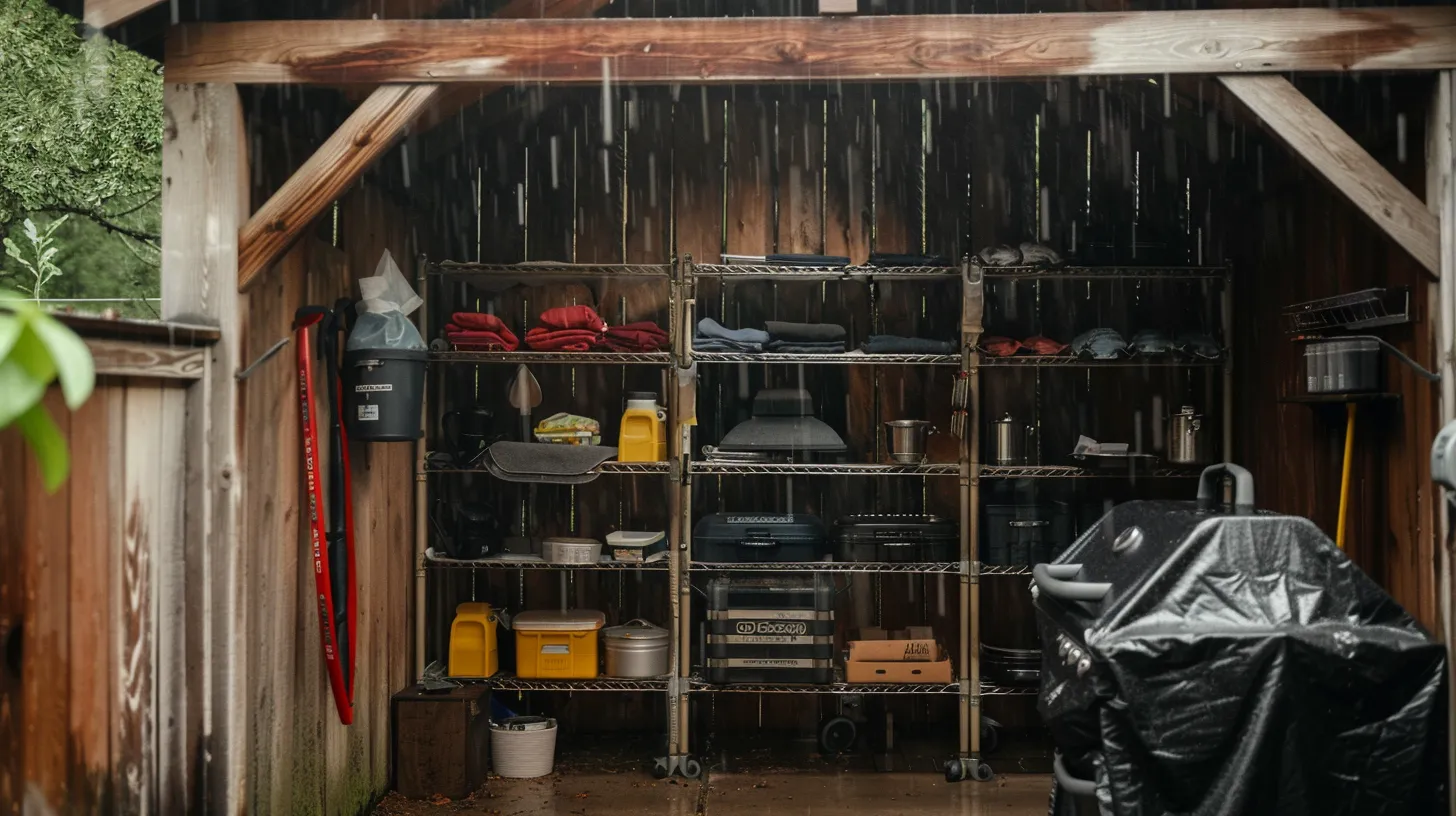
Efficient storage of your grill cover is important for preserving its condition and extending its usability. Choosing the right cover and making sure it is properly stored can greatly reduce the risk of damage from environmental factors such as mold or mildew. To achieve this, consider using dedicated storage solutions like storage bags or bins specifically designed for covers. These options protect the cover from external elements when not in use.
It's essential to store your grill cover in a cool, dry place . Moist environments encourage the growth of mold and mildew, which can deteriorate the material of the cover over time. Therefore, avoiding damp storage areas is critical for maintaining the quality of your cover.
Additionally, the method of storing the cover can greatly impact its longevity. Avoid folding or crumpling the cover; instead, consider hanging it on a hook or rack. This prevents the formation of creases and makes it easier to access and deploy when needed. Before storing, make sure that the cover is thoroughly cleaned and completely dried . This step is crucial to prevent any residual moisture from initiating mold or mildew growth, thus prolonging the life and effectiveness of your grill cover.










